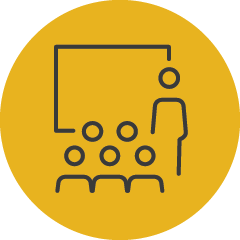
Opinions expressed in AGB blogs are those of the authors and not necessarily those of the institutions that employ them or of AGB.
If there is one position inside the world of higher education that has undergone fundamental changes in the last 10 years, it is the position of the board professional. These changes are well-chronicled in two recent pieces that deserve your attention.i In fact, if you haven’t read them and are on the fence about attending the upcoming AGB 2024 Board Professionals Conference in Boston (March 24-26, 2024), they should serve as sufficient motivation to register now.
For me, my decision to join my board professional colleagues at this conference focuses on the myriad roles, obligations, and duties that the two authors of these articles have identified as cornerstones for our positions. I have asked myself whether I have the “best in show” skills in each of these areas. (Spoiler alert I do not.) Hence, I am packing my bags for Boston.
Board Professional: Wearer of Many Hats
Scan this checklist that identifies several of the roles that board professionals have taken on in the last decade. Ask yourself whether you are at the peak of our profession in each of these roles:
- A planner and manager of consequential board meetings;
- A “true partner in governance” through framing and resolving governance and policy issues;
- A candid sounding board for the president and senior leadership about strategic issues facing the board;
- An “alignment tester” to assess alignment between the board’s and the president’s priorities;
- An information facilitator for the board regarding the institution’s handling of issues, especially during a crisis;
- A trusted confidante whose impartiality, judgment, regard for sensitive information, and discretion are deeply respected by board leadership, board members, the president, and senior leadership;
- A relationship manager between senior leadership and board members;
- A professional highly attuned to strategic issues—academic, administrative, student-facing, financial, political, etc.— confronting your institution AND the higher ed eco-system, including an uncanny ability to see the issues just “around the corner;”
- A skilled communicator of key institutional accomplishments and events;
- A protector of the institution—especially its mission and priorities;
- An instructor of board members to help them understand and hone their fiduciary duties and responsibilities, as well as their expectations (and limitations) in support of a healthy, inclusive board culture and good governance;
- A partner to assist the board to assess its effectiveness in the performance of its work; and, as a tip of the hat to the past, don’t forget …
- A meeting scribe and handler of board correspondence.
Using the AGB Conference to Leverage Institutional Excellence
I arrived at my role of board professional through a somewhat different path than others have taken. For 10 years, I was a trustee on the very same board I work with today–seven of those years as the vice chair of the board. This has no doubt helped leverage the kinds of relationships with the board, the president of my institution, and my senior leadership colleagues that we value as board professionals. It has also helped me understand how and where our work can add value to the efforts of the board, the president, and senior leadership. On top of this, I also serve as general counsel to my institution, which requires my involvement in some of the most sensitive issues and topics facing the board and the institution.
As a starting place, my personal view is that as a board professional my job is to help and support our board, our president, and our senior leadership to do their best and most consequential work in fulfillment of the mission of our institution.
With a focus on this perspective, I believe this means we must:
- Be our best, most authentic selves in the performance of our work,
- Use our position to ensure our board as a whole, and our members individually, are their best selves in the performance of their work,
- Use our position to support the president and our colleagues throughout the institution so they can do their best work.
I am preparing for the upcoming Board Professionals Conference by categorizing the issues and topics that will be featured. I then plan my attendance at sessions and activities that will help me position my institution and my board for success. For each of us, the issues and topics we prioritize are likely to be different, depending on the challenges each of us faces. A glance at this year’s list of issues and topics reveals they fall into several buckets. These include:
- Improving board members’ engagement, inclusion, and sense of belonging;
- Honing effective communications skills;
- Fostering consequential (and good) governance;
- Developing the tools of our trade, including the board professional certificate, means of career development and growth, effective audio visual and other technological tools and techniques including artificial intelligence in performing our work, a primer on Roberts Rules of Order;
- Delineating our work with the board;
- Acting during moments of institutional crisis;
- Coping with an environment of significant change—planned or unplanned;
- Aiding our board members to perform their work using AGB’s Principles of Trusteeship for orientation sessions and ongoing development of outstanding board members; and
- Assessing board performance and structure and fundamental building blocks of effective boards.
Polishing our skills and enhancing our knowledge toolboxes through the various presentations, tips, and best practices our colleagues will share on these topics are effective ways to think about how to get the most from the conference.
Conference Dividends and Takeaways
Of course, none of the learning, experience-sharing, knowledge-building, skill-polishing, and engaging in consequential work at our conference occurs in a vacuum. In fact, we could not be our best selves without each other’s company. As noted by Charlene K. Reed in The Role of the Board Professional, our role can be solitary and lonely at times. Very few of us are blessed with robust levels of support staff to whom we can turn to talk about issues and topics requiring sensitivity, impartiality, objectivity, and confidentiality. This is especially true in the dual role of board professional/general counsel.
So, for me, a major dividend of this conference is the opportunity to be with colleagues as we learn and share perspectives in one another’s company. It is also why I invest time in various AGB webinars and other online discussions offering the opportunity to learn from the best and brightest in our profession as they share their successful (and unsuccessful) practices, takeaways, and tips.
It is also a great opportunity to “borrow” some of the ideas, highlights, and themes of the conference. A couple of examples from my own experience illustrate this:
- Recognizing the value of collaboration, my board professional colleagues in the New England Small College Athletic Conference (NESCAC) began holding monthly Zoom meetings two years ago to discuss how we each address various issues and topics of the day. I thank my colleagues at Amherst, Bates, Bowdoin, Connecticut College, Hamilton, Middlebury, Trinity, Tufts, Wesleyan, and Williams—many of whom are joining our conference in Boston—for sharing their own wealth of knowledge and experience in these meetings.
- Further leveraging our perspectives, we plan an annual in-person NESCAC Board Professionals Conference to provide us with dedicated time to dig into topics and issues in greater detail.
- Recognizing the value of collaboration and sharing, Tom Hyatt, AGB’s general counsel, and I have partnered to form an affinity group of board professionals who also serve as general counsels to their institutions. The “BP-GC” role is unique, with additional challenges beyond those identified here. For those serving in both roles, please join us for our quarterly meetings.
In closing, none of us are born naturally effective board professionals. Instead, we develop our skills and do our best work in our various roles through the time we invest to develop our better selves. The Board Professionals Conference is a preeminent resource to help us be at our best. I hope you will find the time to avail yourselves of the opportunities the conference will provide, and I look forward to seeing you there.
Richard Y. Uchida is vice president, general counsel, and secretary of the college at Colby College.
Notes
i Elizabeth Alvarado, “Leveraging the Role of the Board Professional,” AGB, Trusteeship, January/February 2024; David Jesse, “The ‘Linchpin’ Job That Sits Between the President and the Board,” Chronicle of Higher Education, September 8, 2023.
RELATED RESOURCES

AGB Events
2024 Board Professionals Conference

Trusteeship Magazine Article
Leveraging the Role of the Board Professional

